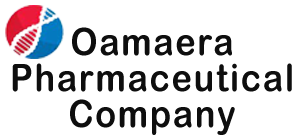Eduardo Muñoz, PhD, MD
Scientific Advisor
Giovanni Appendino, PhD
Scientific Advisor
Rao Movva, PhD
Scientific Advisor
Dr. Movva brings broad experience from the biotech and large pharmaceutical industry, having worked since the very early years of biotechnology at Biogen and at Novartis as Executive Director. Dr. Movva and his collaborators have uncovered the mechanism of action of many natural compounds to advance them as leads for drug discovery. Dr. Movva was recognized in 2012 as a Novartis Distinguished Scientist for his significant contributions to drug discovery. Dr. Movva had initiated and pioneered the chemical biology efforts that led to the discovery and the understanding of the biological targets of rapamycin, the TOR pathways, in collaboration with Drs. Joseph Heitman and Mike Hall at Biozentrum, Basel. This significant milestone lead to advancing the currently marketed drugs and highlighted novel therapeutic opportunities that are actively pursued by many biotech companies. Dr. Movva received his PhD in Molecular Biology from SUNY at Stony Brook, New York.
Eduardo Candelario-Jalil, Ph.D.
Scientific Advisor
Dr. Eduardo Candelario-Jalil is a tenured Associate Professor in the Department of Neuroscience, McKnight Brain Institute, University of Florida. His research spans nineteen years of work in neuropharmacology, biochemistry, and molecular biology. His current research activities are focused on identifying novel molecular targets to reduce blood-brain barrier damage following ischemic stroke. Additionally, Dr. Candelario-Jalil directs an active research program with great translational potential, funded by two National Institute of Health (NIH) grants, with research focused on understanding neuroinflammatory mechanisms following ischemic stroke utilizing biochemical, cellular, genetic, pharmacological, and MRI multimodal approaches. Dr. Candelario-Jalil has made significant contributions to the understanding of neuroinflammatory mechanisms in ischemic stroke and has authored 69 original peer-reviewed publications, 11 invited review articles, and 3 book chapters.

